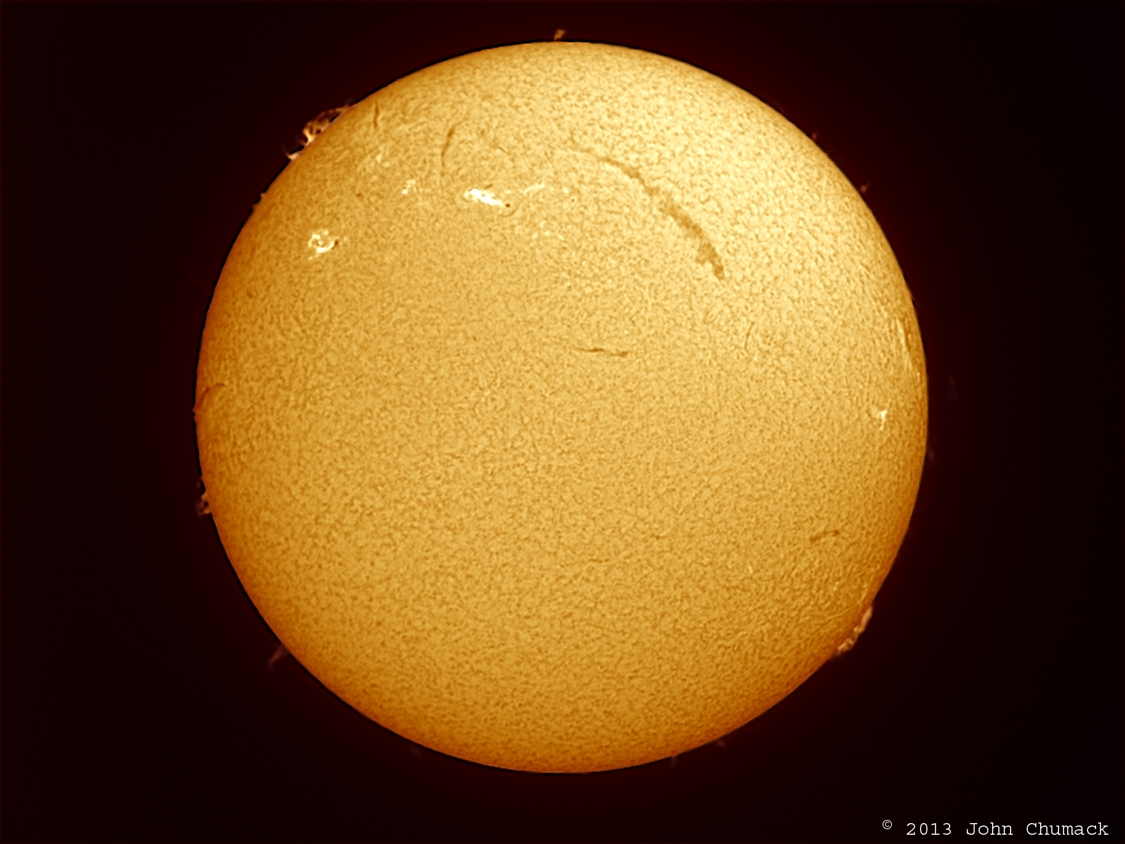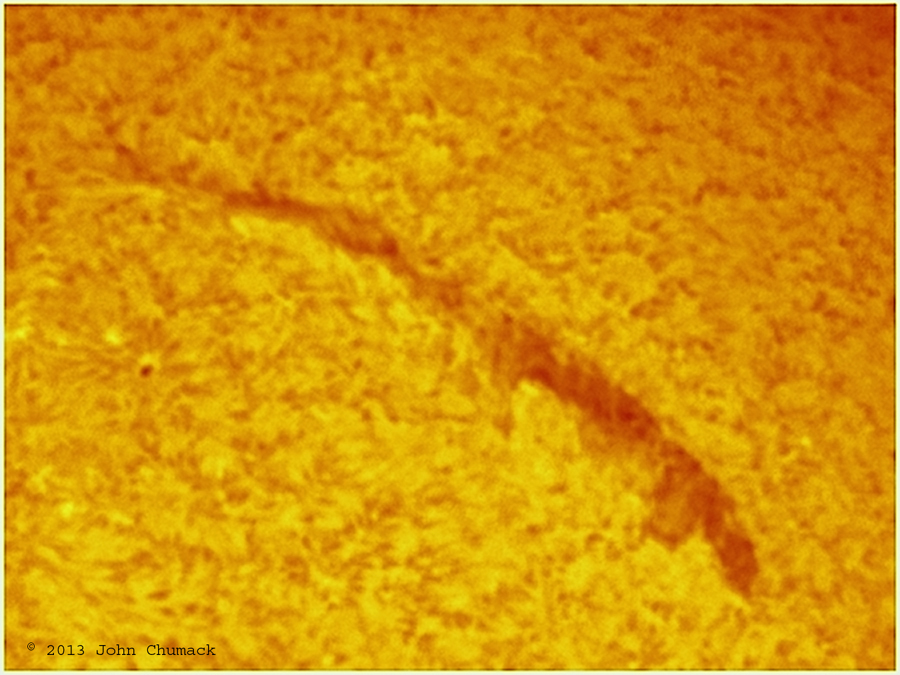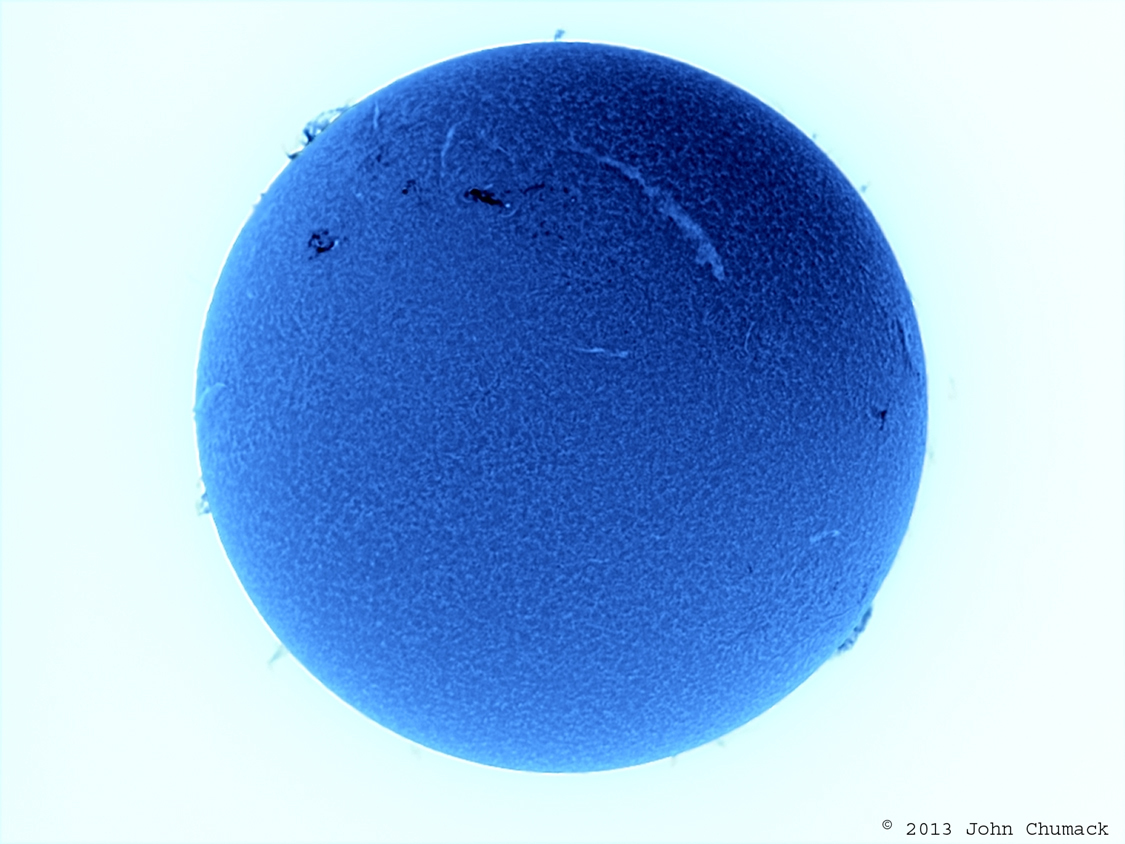
A photographer and die-hard solar observer has captured absolutely stunning views of a colossal filament of super-hot plasma snaking its way across the surface of the sun.
Veteran astrophotographer John Chumack took the new sun photos on Aug. 11 despite cloudy weather from his backyard in Dayton, Ohio, using a DMK 21 and DMK 31 Cameras and Lunt Hydrogen Alpha Solar Scope. The close-up images are 1/77-second exposures and the full disk shots 1/436-second exposure.

What looks like a snake-like cloud in the new sun photos is actually a solar filament made of primarily charged hydrogen gas. The sun’s magnetic field holds the gas in the atmosphere giving it the shape seen in these images. The filament appears dark because it is cooler than its surroundings. These filaments might remain over the sun’s surface for months.
Warning: Never look directly at the sun through binoculars, telescopes or with your unaided eye. Severe eye damage, and even blindness, can result. Astronomers and solar photographers use special filters to safely observe the sun and protective glasses are required for solar eclipse viewing.

Editor's note: If you have an amazing night sky photo you'd like to share for a possible story or image gallery, please contact managing editor Tariq Malik at spacephotos@space.com.
Follow SPACE.com on Twitter @Spacedotcom. We're also on Facebook & Google+.
Get the Space.com Newsletter
Breaking space news, the latest updates on rocket launches, skywatching events and more!
Join our Space Forums to keep talking space on the latest missions, night sky and more! And if you have a news tip, correction or comment, let us know at: community@space.com.
Nina Sen is a freelance writer and producer who covered night sky photography and astronomy for Space.com. She began writing and producing content for Space.com in 2011 with a focus on story and image production, as well as amazing space photos captured by NASA telescopes and other missions. Her work also includes coverage of amazing images by astrophotographers that showcase the night sky's beauty.
